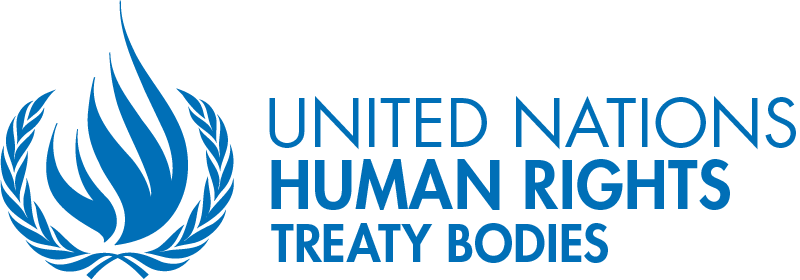
Press Release



IACHR, CED, and WGEID: States Must Prevent the Adverse Effects Faced by Relatives of Missing Persons and Respond to These from a Gender Perspective
August 30, 2022
Related links
Contact info
IACHR Press Office
Distribution List
Washington, D.C./Geneva — On the International Day of the Victims of Enforced Disappearances, the Inter-American Commission on Human Rights (IACHR), the Committee on Enforced Disappearances (CED), and the Working Group on Enforced or Involuntary Disappearances (WGEID) called on States to adopt measures to prevent the risks and adverse effects faced by relatives of disappeared persons and respond to these from a gender perspective.
The IACHR, the CED, and the WGEID have received extremely consistent information on the threats, ill-treatment, and harm that families endure after the disappearance of a loved one, both during the search and investigation process and when defending their rights. As a result, not only do they risk their lives and integrity by searching for missing relatives, they also experience adverse effects to their finances, health, family and social life, and life projects, among many other areas. The three organizations emphasize that victimization is aggravated when the head of household disappears as this alters family structures and has psychological effects on spouses and children. While these adverse effects often extend to all family members, the IACHR, CED, and the WGDIF emphasize that the consequences faced by female relatives who must suddenly take on a leading role in searches and investigations are particularly severe.
Indeed, the search, investigation process and the arduous journey that family members and relatives, especially women, must embark on to defend their rights expose them to a series of adverse social and economic effects, as well as the risk of violence, including sexual violence, forced displacement, disappearance, persecution, and reprisals as a result of their efforts to locate their loved ones. Some of these threats and violence are enacted with the aim of silencing the voices of family members and interrupting the search and investigation. They also function as retaliation for having confronted the perpetrators by defending the victims' rights. These circumstances are compounded by discriminatory practices around access to truth, justice, and reparation such as those experienced by women and LGBTIQ+ persons, who face barriers when filing complaints of enforced disappearance and experience practices that entail revictimization on the part of State institutions. Groups of family members searching for their missing loved ones and civil society organizations have also spoken out against the lack of information and communication with families who wish to take part in search and investigation processes and the fact that they are often not permitted do so.
In this context, all three organizations call on States to adopt comprehensive policies on enforced disappearances that seeks to make the rights to truth, justice, and reparation a reality. Such policies must include an analysis of the multiple adverse effects that this unacceptable crime has on family members and relatives. They should be designed and implemented through a differential approach that takes the specific needs of victims into account, regardless of their gender or sexual orientation. It should also contemplate the economic and psychosocial impact that the disappearance and search has on victims' families, particularly women. In this regard, the CED's Guiding Principles for the Search for Disappeared Persons (Guiding Principles) notes that it is States' duty to assess and provide the support needed by families during the search process. They should also require the search to follow a differential approach and be undertaken from a gender perspective and with adequately trained personnel.
In the same vein, the three international organizations emphasized that it is States' duty to carry out search and investigation activities based on guidelines and protocols that prioritize discrimination-free communication and coordinated action with family members and relatives, regardless of their gender or sexual orientation. This includes providing victims with adequate information regarding their rights and the protection mechanisms available to them.
In line with the Guiding Principles, they also recall States' duty to ensure that family members are not subjected to stigmatization or other ill-treatment or defamation that would be detrimental to their dignity or that of their missing loved ones. Whenever a risk is identified, the competent authorities must provide comprehensive support and allow and facilitate protection measures. In this regard, the Inter-American Court, the CED, and the GTDFI have stated on several occasions that any person who intervenes in or provides support for search, exhumation, identification, and investigation work must have proper security guarantees. Likewise, the State must initiate the necessary investigations in the event of a threat or attack and adopt specific measures to prevent and end such acts.
Finally, the IACHR, the CED, and the WGEID acknowledge the major contributions that family members and relatives searching for their loved ones have made to finding missing persons and furthering investigations into these cases. Their experience and knowledge should be duly taken into account by States when designing, implementing, and evaluating search, investigation, and reparation policies.
A principal, autonomous body of the Organization of American States (OAS), the IACHR derives its mandate from the OAS Charter and the American Convention on Human Rights. The Inter-American Commission has a mandate to promote respect for and to defend human rights in the region and acts as a consultative body to the OAS in this area. The Commission is composed of seven independent members who are elected in an individual capacity by the OAS General Assembly and who do not represent their countries of origin or residence.
The Committee on Enforced Disappearances is the body of independent experts which monitors the implementation of the Convention for the Protection of all Persons against Enforced Disappearance by the States parties. The CED was designed to protect all people from enforced disappearances, to prevent their occurrence, to provide support to victims and guide States as to the measures to take to promote the rights of the Convention, and enhance cooperation and assistance between States.
The mandate of the WGEID on Enforced or Involuntary Disappearances is to assist the families of missing people in determining their fate or whereabouts. The WGEID serves as a channel of communication between the family members of victims of enforced disappearance and and the Governments concerned, with a view to solving cases of disappearance. Since the adoption of the Declaration on the Protection of All Persons from Enforced Disappearance by the General Assembly in 1992, the WGEID has been mandated to monitor States' progress on complying with their obligations under the declaration and to assist with promoting its implementation.
No. 191/22
10:00 AM

